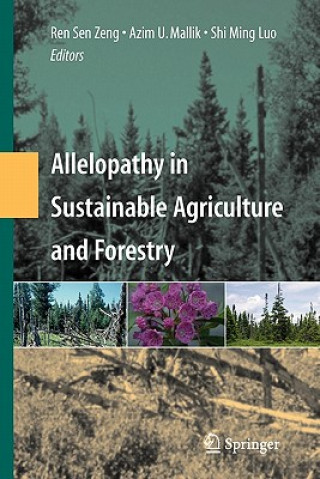
Kód: 04431162
Allelopathy in Sustainable Agriculture and Forestry
Autor Rensen Zeng
Allelopathy in Sustainable Agriculture and Forestry§Zeng, Ren Sen; Mallik, Azim U.; Luo, Shi Ming (Eds.) §Simply put, allelopathy refers to an ecological phenomenon of plant-plant interference through release of organic chemicals ... celý popis
- Jazyk:
 Angličtina
Angličtina - Väzba: Brožovaná
- Počet strán: 412
Nakladateľ: Springer-Verlag New York Inc., 2010
- Viac informácií o knihe

Mohlo by sa vám tiež páčiť
-

Cousin Paul. by Jessie Glenn.
34.41 € -

Guide to Statistics of Social Welfare in New York City / by Florence Du Bois.
34.41 € -

Deluxe
12.25 € -23 % -

Ancient Constitution and the Feudal Law
58.92 € -

Grandma's Cook Book and Recipes
30.84 € -

Oresteia
12.55 € -13 % -

Vampire of Ropraz
14.70 €
Darčekový poukaz: Radosť zaručená
- Darujte poukaz v ľubovoľnej hodnote, a my sa postaráme o zvyšok.
- Poukaz sa vzťahuje na všetky produkty v našej ponuke.
- Elektronický poukaz si vytlačíte z e-mailu a môžete ho ihneď darovať.
- Platnosť poukazu je 12 mesiacov od dátumu vystavenia.
Viac informácií o knihe Allelopathy in Sustainable Agriculture and Forestry
Nákupom získate 695 bodov
 Anotácia knihy
Anotácia knihy
Allelopathy in Sustainable Agriculture and Forestry§Zeng, Ren Sen; Mallik, Azim U.; Luo, Shi Ming (Eds.) §Simply put, allelopathy refers to an ecological phenomenon of plant-plant interference through release of organic chemicals (allelochemicals) in the environment. These chemicals can be directly and continuously released by the donor plants in their immediate environment as water leachates volatiles in the air or root exudates in soil - or they can be the microbial degradation products of plant residues. Allelochemicals may interfere with survival and growth of neighboring or succeeding plants, and may also discourage insects and pathogens. Black walnut, eucalyptus, sunflower, sorghum, sesame and alfalfa are common examples of plants with allelopathic properties. Likewise, staple crops such as rice, wheat, barley and sorghum also exhibit allelopathic characteristics.§Knowledge of this form of plant interference on other plants and on disease causing organisms has been used in agriculture since prehistoric time. By manipulating cropping pattern and sequence through mixed cropping or crop rotation, farmers have been able to maintain sustained productivity. However, use of numerous agrochemicals - including a wide range of herbicides, pesticides, fertilizers and genetically modified high yielding crops - has become the characteristic feature of modern industrial agriculture. Not only is the sustainability of crop yield called into question in this form of agriculture, but the extensive long-term and often irreversible environmental degradation including ground water contamination and food safety associated with industrial agriculture are now serious concerns worldwide.§This book reports on the latest advances in allelopathy through the contributions of leading scientists in the field. The book addresses the history of allelopathy, the science of allelochemicals, and the application of allelopathy in agriculture and forestry. An emphasis on both methodology and application makes Allelopathy a truly practical reference for scientists, researchers and students of plant science, agriculture, forestry, terrestrial ecology and environmental science.§Ren Sen Zeng, Ph. D. is a Professor of Ecology and Director of the Research Center for Chemical Ecology at South China Agricultural University (SCAU) in Guangzhou, China. He received his Ph. D. in Ecology from SCAU in 2000. Professor Zeng was elected as New Century Excellent Talents in University of China. He serves in the Executive Council of International Allelopathy Society. His research focuses on allelopathy and chemical interactions between plants and other organisms. §Azim Mallik, Ph. D. is a Professor of Biology and Chair of Graduate Studies Program in Biology at Lakehead University, Ontario, Canada. He received his Ph. D. from the University of Aebrdeen, U.K. Professor Mallik is widely published in peer-reviewed journals on disturbance ecology and allelopathy. He jointly edited a book with Professor Inderjit on Chemical Ecology of Plants. He received the Grodzinsky Award of International Allelopathy Society (IAS). Professor Mallik is a founding Vice-President and immediate past President of IAS and currently treasurer & executive board member of INTECOL.§Shi Ming Luo, Ph. D. is a Professor of Ecology and Director of the Institute of Tropical and Subtropical Ecology at South China Agricultural University. He received his Masters in Agronomy from SCAU in 1982 and an honorary doctorate degree from Pennsylvania State University. He served as the President of SCAU for eleven years. Professor Luo is Vice-President of the Ecological Society of China. His research interests include allelopathy and ecological agriculture.
 Parametre knihy
Parametre knihy
Zaradenie knihy Knihy po anglicky Mathematics & science Biology, life sciences Life sciences: general issues
280.57 €
- Celý názov: Allelopathy in Sustainable Agriculture and Forestry
- Autor: Rensen Zeng
- Jazyk:
 Angličtina
Angličtina - Väzba: Brožovaná
- Počet strán: 412
- EAN: 9781441926494
- ISBN: 1441926496
- ID: 04431162
- Nakladateľ: Springer-Verlag New York Inc.
- Hmotnosť: 652 g
- Rozmery: 235 × 155 × 24 mm
- Dátum vydania: 12. October 2010
Obľúbené z iného súdka
-

The Molecule of More
16.43 € -23 % -

Evolution
28.79 € -8 % -

Power, Sex, Suicide
13.06 € -18 % -

Psychopath Inside
16.94 € -12 % -

Murderous Minds
16.33 € -6 % -

Science of Meditation
11.02 € -23 % -

Oxygen
12.25 € -23 % -

Race Differences in Intelligence
35.74 € -
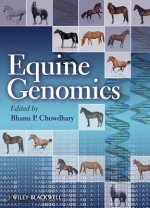
Equine Genomics
229.19 € -

The Selfish Gene
11.63 € -19 % -

Undoing Project
11.02 € -15 % -

Biology of Belief
17.66 € -23 % -

Power of Habit
12.04 € -24 % -

Sapiens
21.44 € -
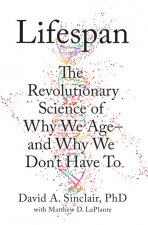
Lifespan
24.09 € -23 % -

The Extended Phenotype
13.27 € -23 % -
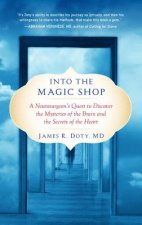
Into the Magic Shop
15 € -22 % -

Homo Deus
11.33 € -21 % -

Cosmic Serpent
10.41 € -28 % -

Greatest Show on Earth
11.23 € -22 % -

Speculations on the Evolution of Human Intelligence
9.90 € -4 % -

Blind Watchmaker
12.86 € -24 % -

We Are Our Brains
11.43 € -21 % -

River Out of Eden
11.12 € -23 % -

Brain Book
23.48 € -17 % -

Human Brain Coloring Book
17.46 € -28 % -

Crack In Creation
17.46 € -5 % -
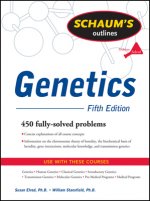
Schaum's Outline of Genetics, Fifth Edition
29 € -14 % -

Brain Rules (Updated and Expanded)
16.54 € -3 % -

Hidden History of the Human Race
13.88 € -19 % -

Fixing My Gaze
22.36 € -

Neanderthal Man
16.13 € -21 % -

Why We Run
16.74 € -13 % -

On Natural Selection
9.79 € -
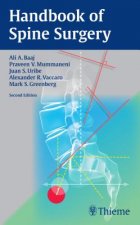
Handbook of Spine Surgery
133.18 € -

Cartoon Guide to Genetics
16.54 € -23 % -

Ecological Thought
26.34 € -6 % -

Creative Evolution
18.37 € -4 % -
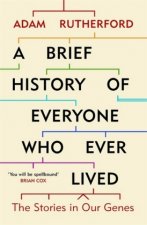
Brief History of Everyone Who Ever Lived
10.92 € -24 % -

Social Conquest of Earth
16.94 € -11 % -

Consciousness
15.92 € -17 % -

Atlas of Human Brain Connections
142.68 € -

Double Helix
17.86 € -8 % -
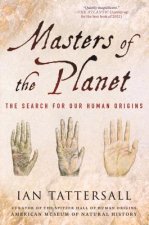
Masters of the Planet
16.13 € -21 % -

Vital Dust
32.47 € -

What Mad Pursuit
29.30 € -

Zooarchaeology and Modern Human Origins
121.33 € -

Handbook of Schizophrenia Spectrum Disorders, Volume I
214.07 € -
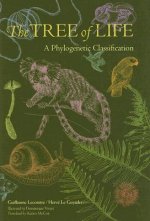
Tree of Life
49.43 € -3 %
Osobný odber Bratislava a 2642 dalších
Copyright ©2008-24 najlacnejsie-knihy.sk Všetky práva vyhradenéSúkromieCookies



 21 miliónov titulov
21 miliónov titulov Vrátenie do mesiaca
Vrátenie do mesiaca 02/210 210 99 (8-15.30h)
02/210 210 99 (8-15.30h)